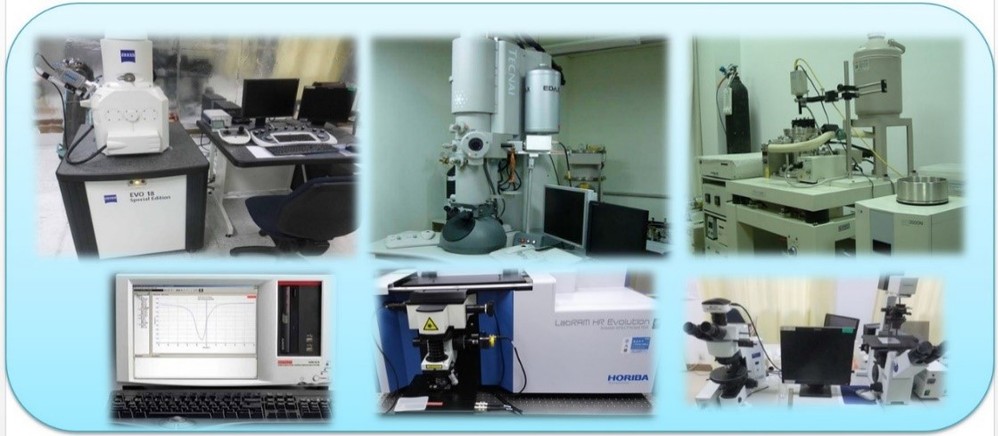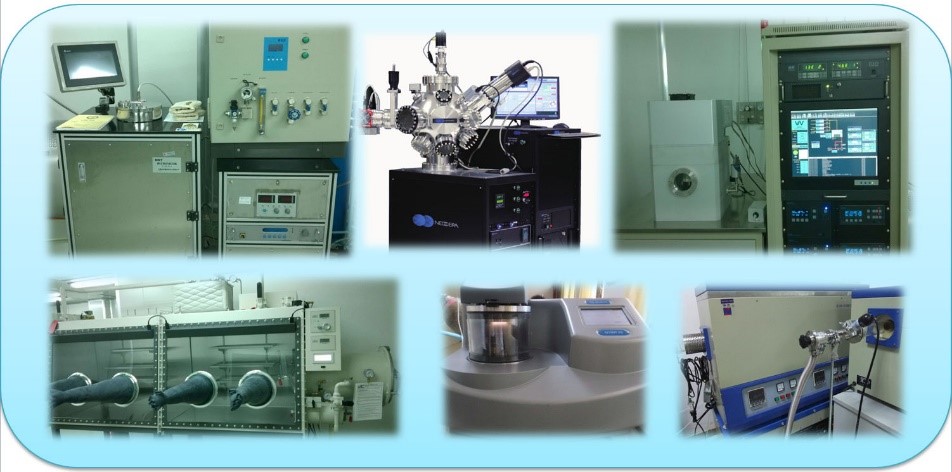Public research platform on-campus
The State Key Laboratory of Mechanics and Control for Aerospace Structures is supported by Nanjing University of Aeronautics and Astronautics. Subject.
The State Key Laboratory of Mechanical and Structural Mechanics and Control (hereinafter referred to as the Laboratory) takes advanced aircraft as the main carrier, and pays special attention to high performance requirements and harsh use environments, as well as the scientific and technological challenges caused by the continuous emergence of new configurations, new materials and new processes. , pays special attention to the development opportunities brought by the trend of material-structure-function integration and intelligence to future aircraft technology, and is committed to solving the development of structural dynamics, lightweight structural strength, precision drive systems, micro-nano intelligent systems, and intelligent structures. Major fundamental issues and key technical issues in China, develop innovative theories, break through technological bottlenecks, serve national needs, lead the development of disciplines, and promote industry progress. The goal of the laboratory is to achieve world-class overall level.
The laboratory has taken the lead in carrying out research on the dynamics and control of aircraft structure in China, and is one of the earliest units engaged in the research on the structural strength of aircraft in China. The laboratory has opened up new fields such as my country's aviation intelligent materials and structures, vibration utilization and precision drive technology, nonlinear dynamics and control, and micro-nano system mechanics.
Aircraft structural strength and vibration engineering expert of our country Mr. Zhang Azhou, structural thermal strength expert Mr. Fan Xuji and intelligent materials and structure expert Mr. Tao Baoqi are the founders of the laboratory. Academicians Zhao Chunsheng, Hu Haiyan and Guo Wanlin further combined major national needs with cutting-edge basic research, and the research results have significantly improved the academic level and influence of the laboratory.
From 1999 to 2017, four professors from the laboratory were elected as academicians of the Chinese Academy of Sciences. The laboratory has now formed an academic team led by academicians, overseas high-level experts, Changjiang Scholars and winners of the Outstanding Youth Fund, and has relatively complete office and experimental conditions. The laboratory has made important original achievements in piezoelectric precision drive and control, nonlinear dynamics of vibration control systems, physical mechanics of low-dimensional nano-functional materials and device principles, fracture of piezoelectric materials, and research on aircraft design and structural strength. Many research results have been applied to more than 30 important aerospace engineering and equipment pre-research. The laboratory has also cultivated a number of outstanding talents who have won national awards.
The laboratory has become a representative academic research institution in the field of aerospace structural mechanics and control in my country, and has a wide range of international academic influences. The research directions of the laboratory are: structural dynamics and control, mechanical structure strength, vibration utilization and precision drive, micro-nano system mechanics and smart materials and structures.

Key Laboratory of Smart Devices of the Ministry of Education
The Key Laboratory of Intelligent Nano Materials and Devices, Ministry of Education was approved by the Ministry of Education in December 2010. At the end of December 2012 , the Ministry of Education entrusted the Ministry of Industry and Information Technology to conduct research on Nano Intelligent Nano Materials and Devices. The Key Laboratory of Materials and Devices of the Ministry of Education conducted the construction plan demonstration, and passed the acceptance of the Ministry of Education in January 2016 . Nanjing University of Aeronautics and Astronautics is the support unit of the Ministry of Education's Key Laboratory of Nano Smart Materials and Devices (hereinafter referred to as the Key Laboratory).
The key laboratory combines the demand for nano-smart materials and devices in the energy and information fields with the urgent problems faced by aerospace technology and national defense engineering, aiming to establish the concept and theory system of nano-smart material systems, and propose new nano-smart materials and devices. Principle, develop application-oriented nano-smart material device preparation, performance characterization and measurement and control technology, explore the application prospects of nano-technology in energy, information, especially high-end fields related to aerospace technology, and explore the leap of nano-technology from basic research to engineering technology way. Cultivate innovative talents in the field of aerospace technology facing the future of nanotechnology, build distinctive high-level frontier interdisciplinary research bases and national-level innovation groups, and improve my country's nano-intelligence with practical application value in the fields of information, energy, and aerospace technology. Material device technology and product innovation capabilities.
The key laboratory currently has 36 fixed members , including 20 with senior titles, 7 with deputy senior titles, and 9 with intermediate titles . Including 1 academician of the Chinese Academy of Sciences , 3 winners of the National Outstanding Youth Fund, 2 winners of the National Outstanding Youth Fund, 1 Changjiang Distinguished Professor of the Ministry of Education , 3 Young Changjiang Distinguished Professors, 3 winners of the Thousand Talents Program , Ministry of Education There are 3 outstanding talents in the new century , 2 national excellent candidates, 3 national excellent candidates , and 3 national academic excellent candidates. At present, the key laboratory covers an area of 3,300 square meters, and has built a cross-scale simulation and large-scale computing platform for nano-smart material devices, a measurement and control characterization platform, and a nano-smart material device preparation and application test platform.

Center for Microscopy and Analysis of NUAA
Center for Microscopy and Analysis of Nanjing University of Aeronautics and Astronautics (hereinafter referred to as the Center) has started construction demonstration work since July 2018. After multiple investigations and scientific demonstrations, it was officially established in November 2020 and is directly affiliated to the department-level organizational system. From June 2021, the central management system has been initially formed and officially started operation .
The center has 4 management posts and 10 professional technical posts ; the laboratory area is 1500m 2 . After centralized purchase and on-campus deployment, the center will be equipped with double spherical aberration corrected transmission electron microscope system, double beam electron microscope, fast scanning probe microscope, field emission high-resolution transmission electron microscope, X -ray photoelectron spectrometer, high-resolution mass spectrometer, laser Raman spectrometer, X -ray diffractometer, high performance liquid chromatograph, steady-state/transient fluorescence spectrometer, magneto-optical Kerr measurement system, dynamic mechanical and thermal analysis test system, electron paramagnetic resonance spectrometer, 400MHz nuclear magnetic resonance spectrometer, etc. Several sets of large-scale analytical instruments can be used for microstructure analysis, organic and inorganic composition and structure analysis, qualitative and quantitative analysis of thermal and mechanical properties of materials, etc.
The center is responsible for the installation, commissioning, training, maintenance and upkeep of large-scale instruments and equipment, providing analysis and testing services for teaching and scientific research in the school, and opening to the society. Focusing on quality , technology and service is the philosophy that the center will uphold. development to provide effective support.
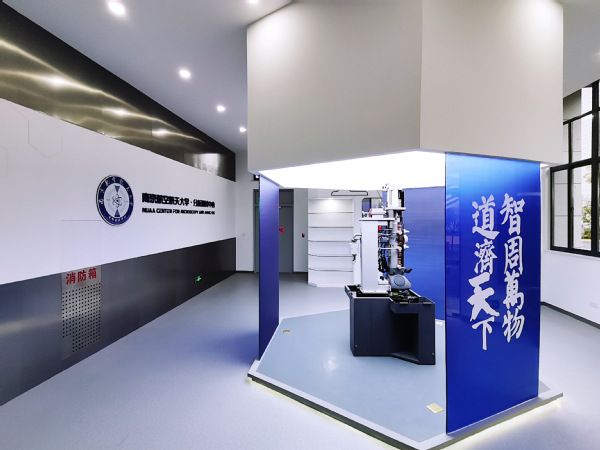
Research Platform of IFS
Hydrovoltaic Science and Technology Platform
The interfacial physics and mechanics processes behind the hydroelectric effect involve multiple levels from micro to macro, including new green energy, surface interface physics, water-related ecology, biophysics, complex system science, cross-scale theory and calculation, and hydroelectric effect material design preparation, etc. It is planned to establish and improve a number of research platforms such as the hydrovoltaic multiphase interface characterization system, the hydrovoltaic dynamics measurement and control and performance optimization system, and the hydrovoltaic technology application and standardization system. It is used for cross-scale characterization of the hydrovoltaic process at multiphase interfaces such as solid-liquid and solid-liquid-gas, from microscopic to macroscopic, to study the interfacial microstructure of hydrovoltaic media in different environments, to explore the charge transfer and transport behavior of the interface, and to grasp the electrical signal. The generation mechanism and transmission pathway are established, so as to establish the law of matter-information-energy coupling at the medium interface .
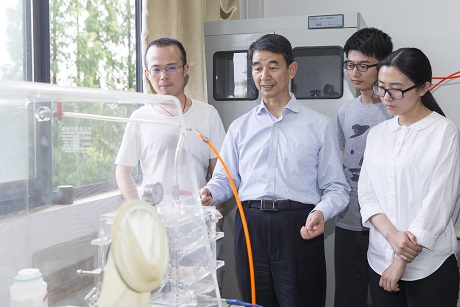
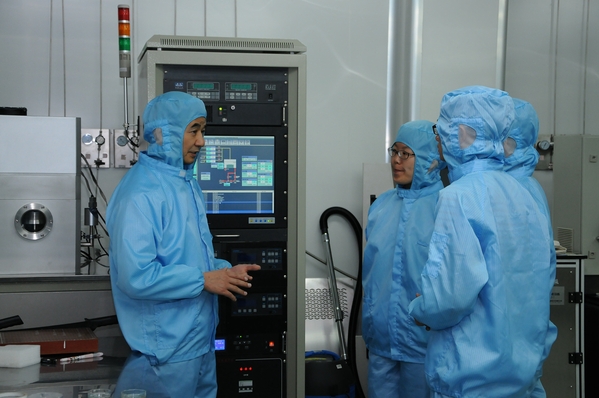
Aerospace Data Science and Intelligent Technology Platform
IFS will aim at the bottleneck, subversive, and forward-looking research directions in aerospace dataization and intelligent technology, and carry out research work on three platforms: the aerospace CGRO platform, the aerospace digital twin platform, and the deep space exploration intelligent technology platform. . Develop the durability and damage tolerance analysis and design software system CGRO of aerospace equipment with completely independent intellectual property rights , which makes the durability and damage tolerance design of lightweight, high reliability and reusable aerospace equipment in China lead the international level. Establish high-fidelity modeling and simulation, data design and virtual verification, real-time monitoring and health prediction, big data management and analysis, digital twin integration platform, etc., to support the entire life of advanced aerospace vehicles with increasing performance indicators and system complexity Periodic research and development, replacing physical tests with a large number of digital simulations, accelerating iterative optimization, reducing technical risks, and further promoting the high-quality leapfrog development of advanced aerospace vehicle design.

Advanced Materials Science and Device Technology Platform
IFS will focus on cutting-edge material science issues and national defense needs, develop advanced materials and devices with high-efficiency environmental response, drive, and adaptability, and solve material problems in frontier fields such as hydroelectric energy, smart sensing, and advanced manufacturing. Develop preparation, performance characterization, and measurement and control technologies for advanced materials and devices, build new principles and new methods for nano-smart devices, and explore the transition from basic research to engineering technology for advanced materials. At the initial stage, it is planned to build three platforms, namely, the controllable preparation and qualitative and quantitative processing platform of intelligent materials, the platform for material characterization, the platform for device performance testing and service evaluation, and the platform for multi-scale collaborative manufacturing of advanced materials. Talents, and build a high-level cutting-edge interdisciplinary research base with innovative characteristics.
